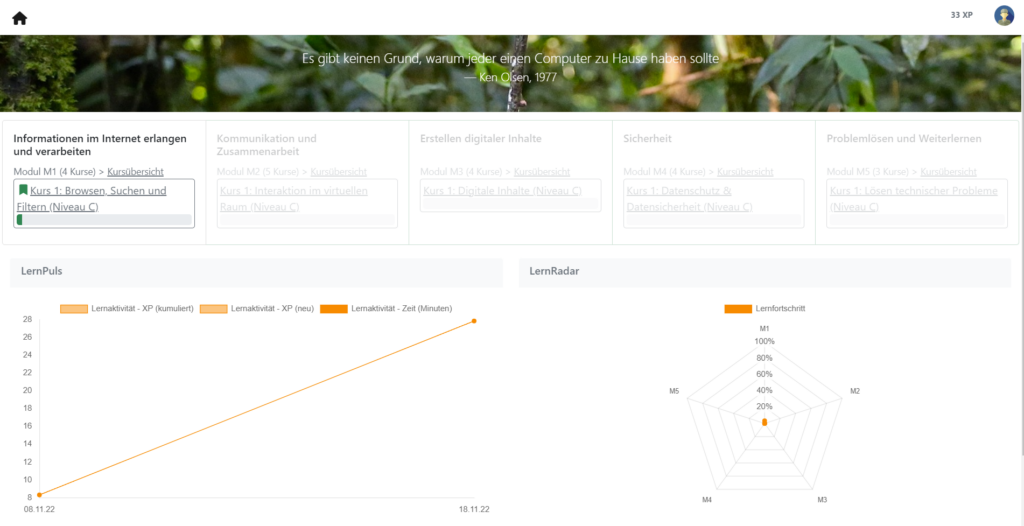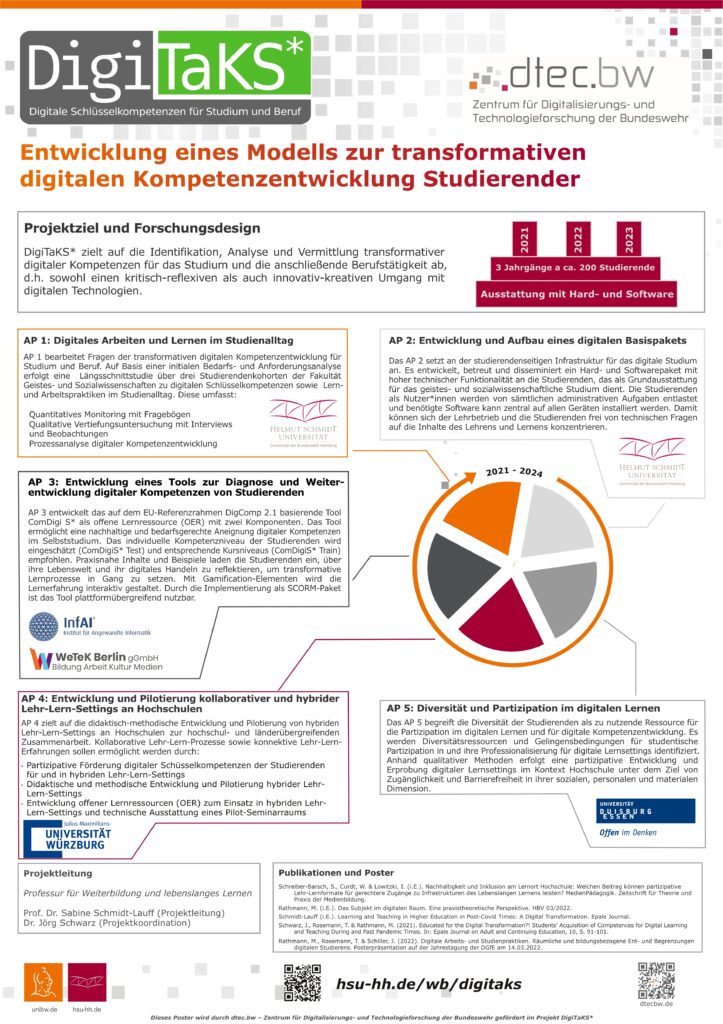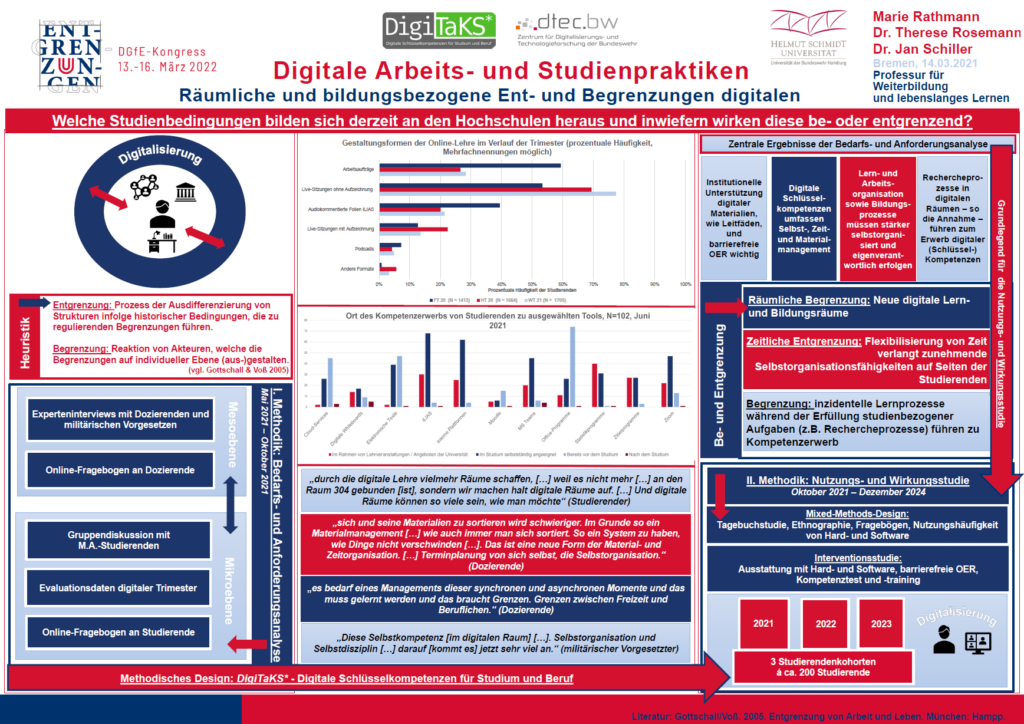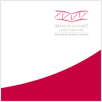User Interface of ComDigiS* completed (November 17th, 2022)
The development of the user interface of the tool for the diagnosis and further development of digital competences “ComDigiS” has been completed. In addition to the navigation elements through the individual learning units, the interface offers different forms of feedback on the learning process with learning radar, learning pulse and experience points. ComDigiS is designed as an open learning resource (Open Educational Resource – OER).

Poster presentation at the DGfE-Sektionstagung der Erwachsenenbildung (GERA division adult education) “Re-Konstruktionen. Krisenthematisierungen in der Erwachsenenbildung” (September 15th, 2022)
At the annual conference of the DGfE, the first results of the interconnected research and devlopment project DigiTaKS* were presented. The first results from the quantiative survey of the research project of the Helmut-Schmidt-University were presented:

Homogeneity of the student group:
- Low age difference with few outliner
- Hardly any care and nursing work alongside studies
- Assessment of own digital competencies very homogeneous
- 30 percent have previous study experience
Heterogeneity in the use of learning materials:
Clear differences emerged in digital learning and usage behavior, the use of tools for self-organization, and the use of learning strategies.
A more detailed analysis of the use of different learning materials revealed three main preferences:
- Materials with scientific depth
- Materials with condensed presentation
- Materials with structured presentation
Poster presentation at the 28. DGfE-conference “Ent|grenz|ung”: Digitale Arbeits- und Studienpraktiken. Räumliche und bildungsbezogene Ent- und Begrenzungen digitalen Studierens (March 14th, 2022)
At the DGfE Congress 2022, which took place at the University of Bremen from March 13-16, 2022, selected results were presented in a poster presentation.
Central findings:
- Need for institutional provision of digital teaching/learning materials, such as guides and accessible OER
- Digital competences include, in addition to information and data competence, communication and collaboration etc. (cf. DigCom 2.1), also self-, time and material management
- Learning and work organisation as well as educational processes must be more self-organised and self-responsible in the course of digitalisation
- Research processes in digital spaces – so the assumption – lead to the acquisition of digital (key) competences
Theoretical location:
- Limitation in terms of space: variety of new digital educational spaces
- Temporal delimitation: flexibilization of time demands increasing self-organization ability
- Incidental learning processes during the fulfillment of study-related tasks lead to the acquisition of competencies

Letzte Änderung: 30. January 2023
